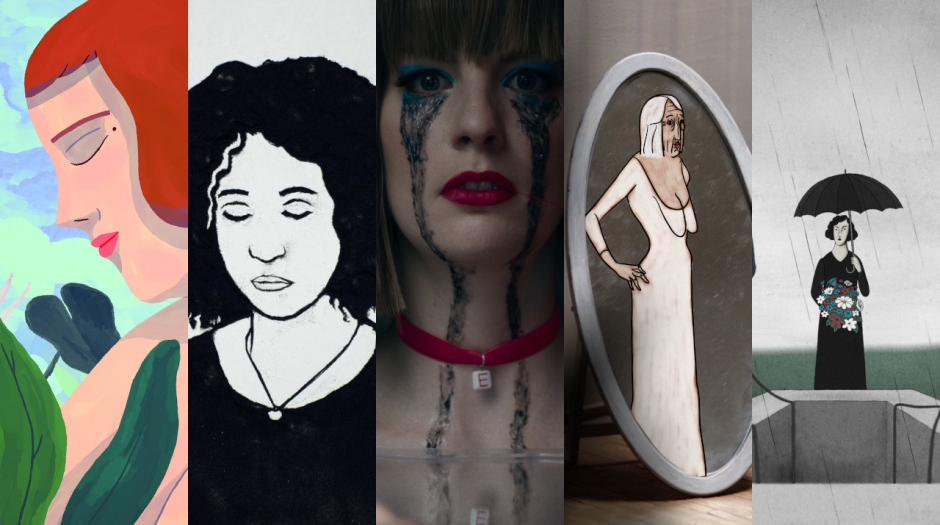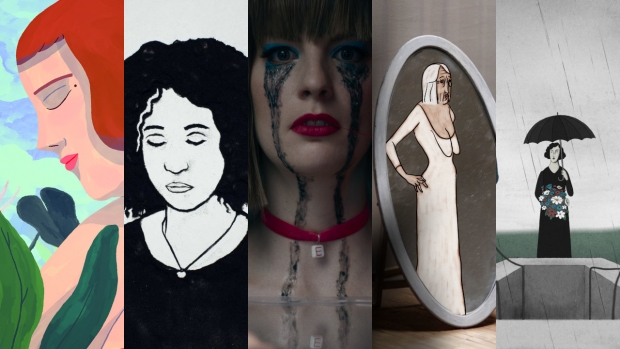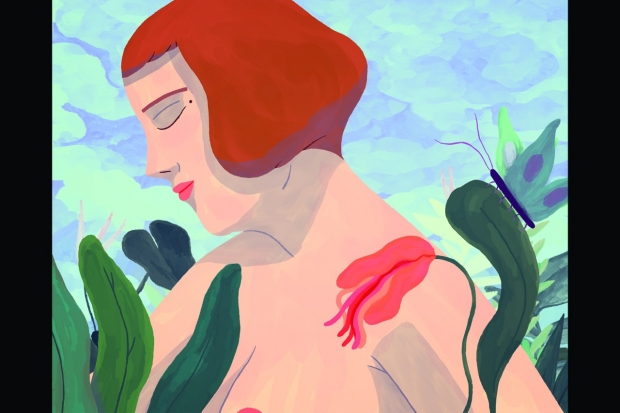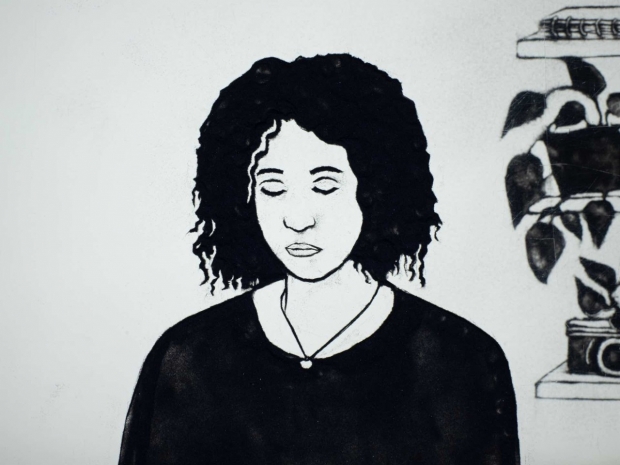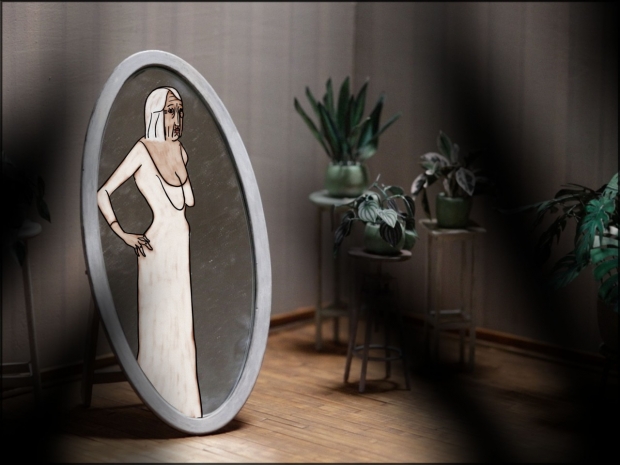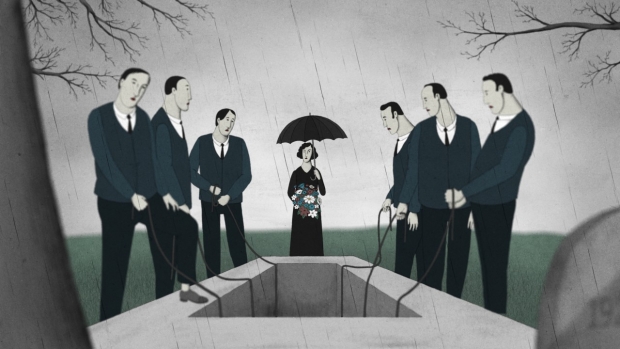Alright, with Annecy 2023 simply across the nook (working June 11-17), let’s take a look at 5 of the 37 chosen competitors quick movies (we simply don’t have the area to discover the scholar, commissioned and TV comps) that may effectively provide you with a soul-tingle or two. And, make sure you take a look at another stellar titles which are in yr 2 of their competition run that we’ve already previewed in previous columns: Canine Residence (Priit Tender), and 11 (Vuk Jevremovic). Inés Sedan’s Love Me True is an progressive have a look at the challenges of on-line courting and display dependancy. There are additionally anticipated new works from John Musker, Franck Dion, Georges Schwizgebel, Stephen Irwin, Richard Reeves, and so forth.
27, Flóra Anna Buda, Hungary/France
A younger girl named, fittingly, Alice, wakes up in a bush, bloodied from a motorcycle crash. The police spot her. To keep away from being arrested she proposes a threesome. Ah… however seems she’s imagining all this throughout a masturbatory second in her bed room.
Alice is feckless and it appears actually attractive (she’s typically misplaced in sexual situations that by no means develop into actuality). She’s turning 27, nonetheless lives along with her mother and father and nonetheless likes to celebration to the acute. Even her little brother thinks she’s a loser. On the night of her birthday, Alice heads out, will get shitfaced and crashes her bike. Is that this the second she’s going to get up and confront the bumpy highway of maturity or only a short-term repose till the hangover fades, the bruises heal and the Dionysian thirst returns?
Skirting between the darkish and lightweight, the sensual and uncooked, and dream and actuality, 27 reveals us a conflicted girl, typically misplaced in fantasies, unable to embrace the challenges of maturity.
But, this isn’t about one girl. Alice’s struggles are frequent with increasingly youngsters persevering with to dwell with their mother and father effectively into their grownup years. Although Buda appears to be coping with a particular Hungarian context, the pandemic, inflation, warfare, and insane housing costs have made it all of the more difficult for younger individuals to search out stable floor in at this time’s society.
Buda, refreshingly, affords no solutions, trigger, effectively, there isn’t any clear and straightforward reply to the anxiety-inducing points dealing with younger, outdated and everybody in between.
Field Cutters, Naomi van Niekerk, France/Netherlands/South Africa
Naomi van Niekerk’s newest movie dropped at thoughts Dennis Tupicoff’s masterful, Her Mom’s Voice within the sense that it tackles an act of violence in a considerably unconventional, but highly effective, method. Whereas Tupicoff’s movie handled a mom recalling the taking pictures loss of life of her son, Field Cutters is a couple of younger girl being violently assaulted on the road by three males. It is usually a none-too-subtle social commentary on a damaged society that has seen and skilled a lot shit that it has grow to be desensitized, virtually nonchalant.
Armed along with her distinctive black and white sand animation with its metamorphic shifts (which properly seize the erratic nature of time and reminiscence), van Niekerk creates a tense work that reveals a world that’s something however black and white. What’s fascinating right here is that we don’t see the precise assault. We see snippets of objects and listen to fragments of recollection from the girl, however the focus appears to be on the earlier than and, particularly, after. How does one transfer ahead from a violent assault, particularly when confronted with chilly, seemingly uncaring reactions from passersby and members of the family which are as equally traumatic because the assault itself?
Electra, Daria Kashcheeva, Czech Republic/France
To seek out paradise you first must undergo Hell with a pitstop later, for those who’re fortunate, in Purgatory. To maneuver ahead, to discover a semblance of peace and real self, typically requires a deep painful dive into the labyrinth of reminiscence. Solely reminiscence is unreliable. As Paul Auster as soon as wrote, “Reminiscence is the area through which a factor occurs for a second time.” In different phrases, reminiscences are a borderless assembly place of reality, lie, and fantasy.
Electra’s makes an attempt to recall her tenth birthday generate a conflict between creativeness and suppressed sensual fantasies. As Electra dives deeper, the strains between previous and current, actuality and fantasy, collapse. Kashcheeva’s (Daughter, 2019) impressed collision of live-action (a number of actresses play Electra) and stop-motion (notably the usage of dolls) magnificently mirrors Electra’s discombobulated psychological and emotional state.
With hints of Svankmaker, Borges and a touch of Bunuel, Electra is a visible and conceptual powerhouse that explores reminiscences, generational battle, id, psychological well being, bodily abuse, and dormant wishes and fears.
Her Gown for the Last, Martina Meštrović, Croatia
As a clock ticks within the background, a fragile aged girl awakens and goes about her every day routines. At one second she returns to her room and pulls out a white marriage ceremony costume. The costume carries her again to a happier, livelier area. She permits herself to briefly journey again to that point earlier than returning to the stark actuality of the right here and now. After briefly tuning right into a basketball sport (the finals, one may assume, given the English title of the movie), the girl decides to dye her marriage ceremony costume black in order that it’s prepared for her funeral.
Combining cease–movement and drawing offers Her Gown for the Last an odd, dreamy duality that seats us on that that hazy border between actuality and loss of life, life and nothingness. Mestrovic creates a low-key ambiance that sticks to the fundamentals, avoiding noisy visible distractions or over-the-top sound. The temper is nearly within the vein of Roy Andersson: a no-fuss acceptance of a actuality view of us we appear keen to just accept as part of the deal: mortality.
Eeva, Morten Tšinakov, Lucija Mrzljak, Estonia/Croatia
Talking of loss of life, the most recent from the award-winning Estonian duo (The Stork, Demonstration of Brilliance in 4 Acts) opens at a funeral. It’s a wonderfully depressing wet day. A lady and a quartet of everymen head out for a post-funeral reception at a restaurant. Booze flows. Music performs. Tables are turned. Glasses are smashed. Woodpeckers seem. Fish get drunk. Nervous breakdowns ensue.
Humorous, confounding, and heartbreaking, Eeva is a freewheeling journey by the incomprehensibility, impossibility, and utter absurdity of grief and loss.

